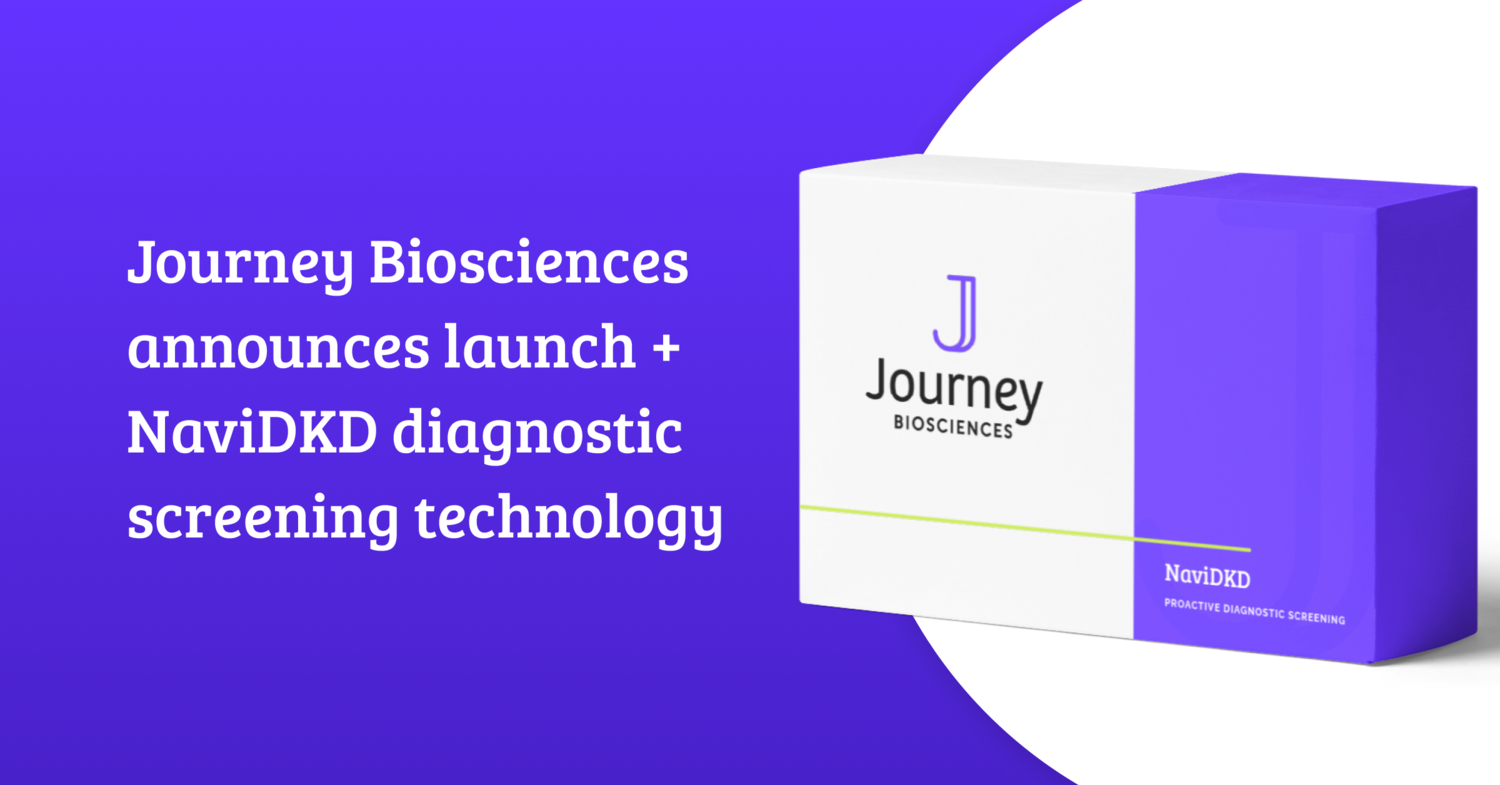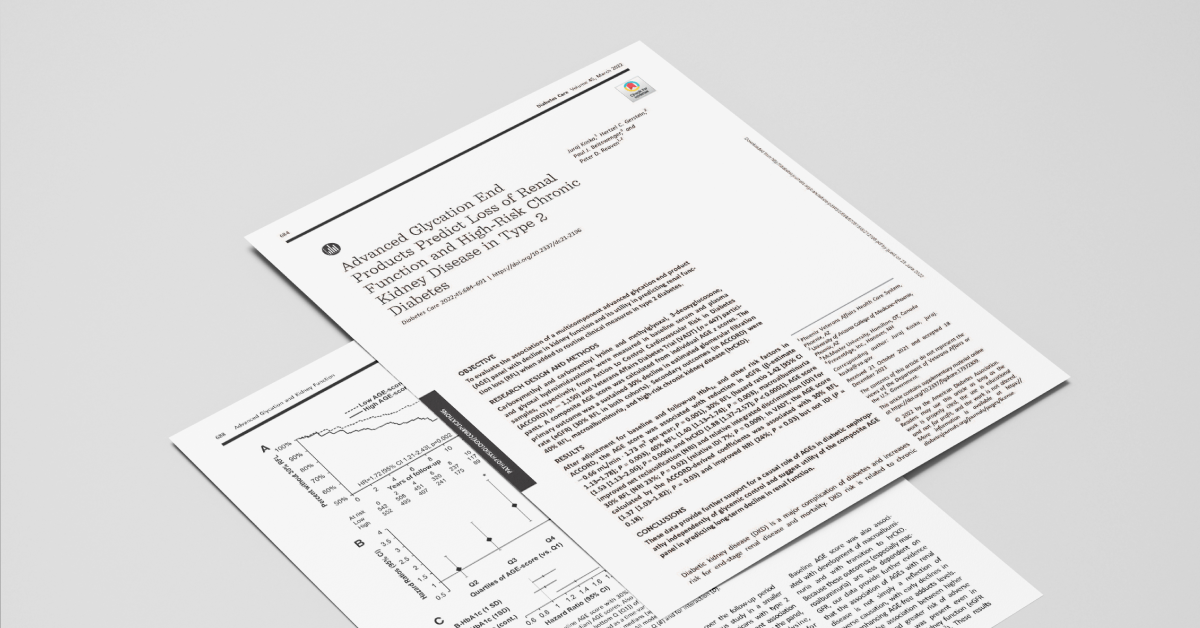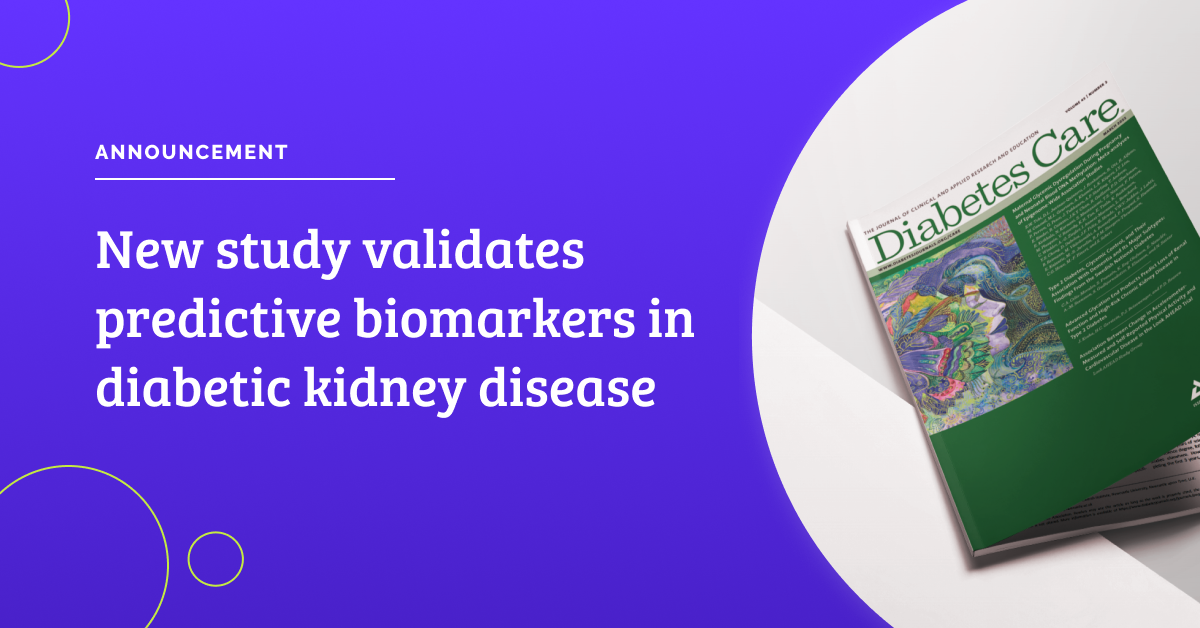Interesting Reads: Food as Medicine and Kidney Health
Going beyond the usual general advice of eating more good things and fewer bad, researchers are focusing on specific impacts various kinds of foods have on kidney function over time. These are the kinds of insights that are making it possible to apply therapeutic nutrition and dietary practices that reduce their risk of developing kidney disease.
Coupled with the predictive screening technology we’ve developed in NaviDKD, these insights give people who are at risk of developing chronic kidney disease tangible therapeutic tools for reducing that risk and keeping their health.
– Adam Graybill | President & CEO
Food as Medicine and Chronic Kidney Disease
Consuming higher amounts of ultra-processed food correlates with higher risk for CKD
American Journal of Kidney Disease
Researchers found that consuming a lot of ultra-processed foods is independently associated with a higher risk of developing chronic kidney disease (CKD) among the general population. Ultra-processed foods are defined as foods and drinks that are industrially processed that contain little to no intact foods and, therefore, consist mostly of artificial substances and additives. Researchers recommend avoiding ultra-processed foods and note that further study is needed to identify the underlying mechanisms.
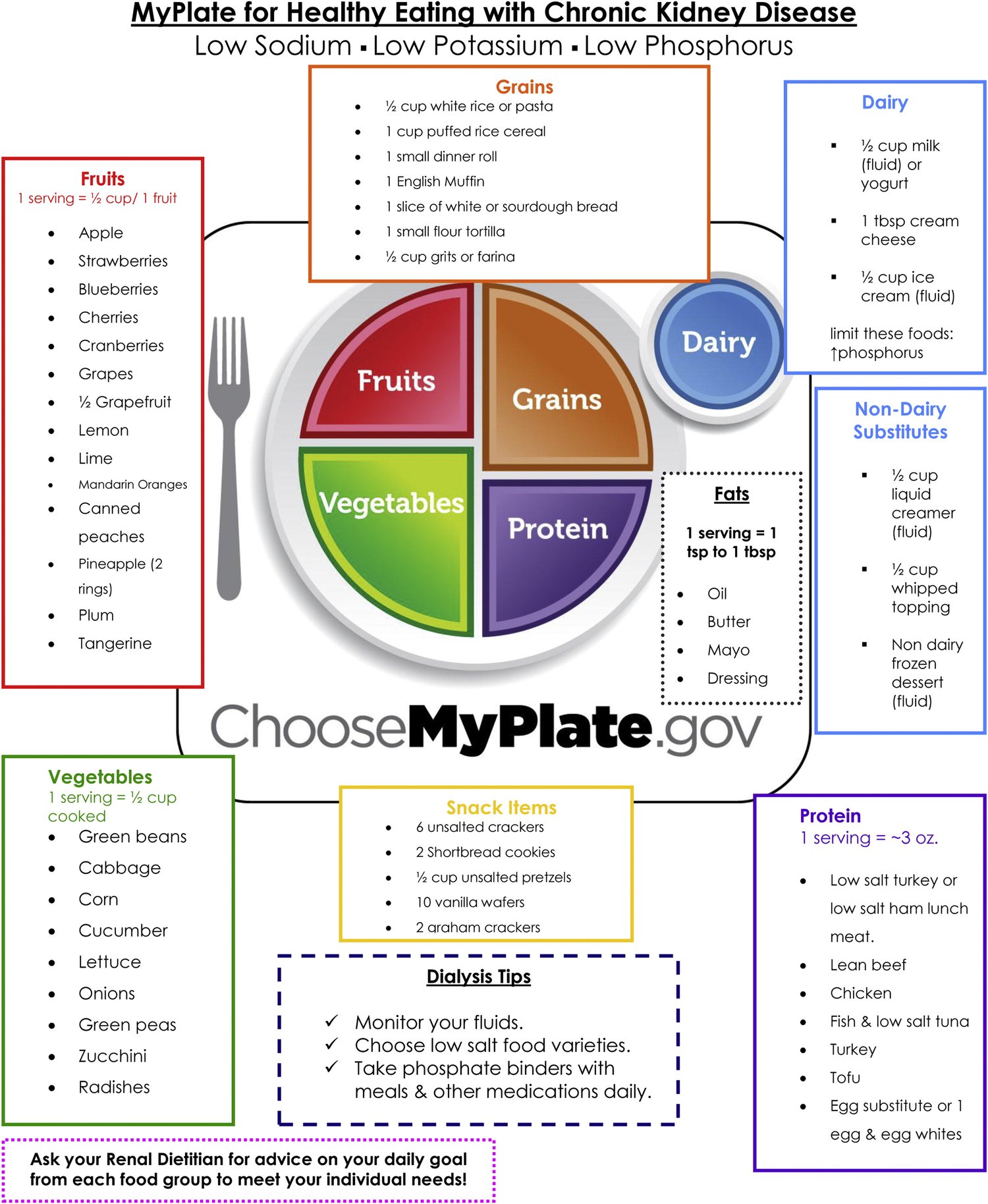
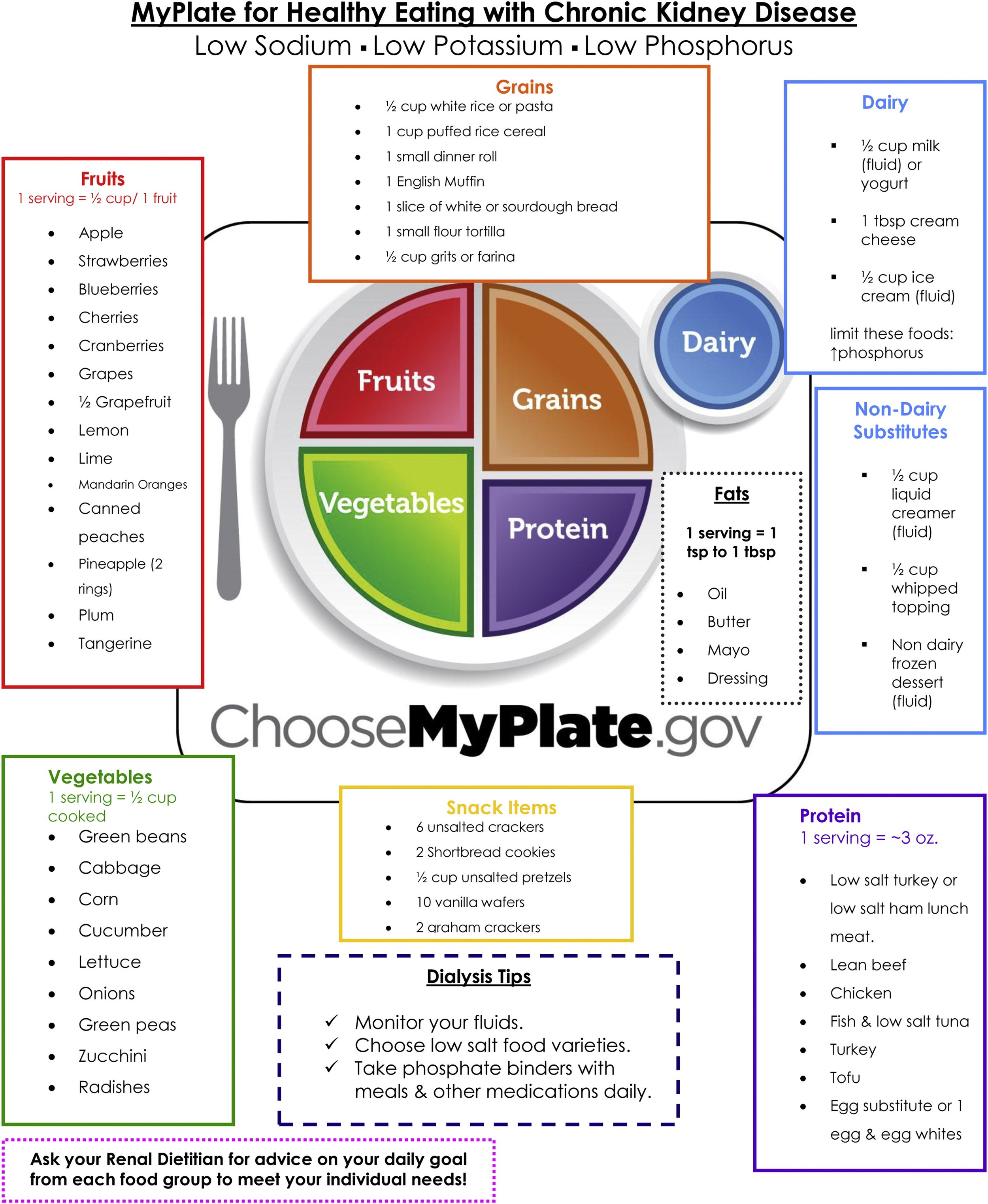
Source: Journal of Renal Nutrition

Patients with CKD more likely to consume limited fruits, vegetables
Journal of Renal Nutrition
Patients with CKD, when compared with patients without CKD, were found to be more likely to consume a limited number of fruits and vegetables in this study. Researchers did not draw any conclusions regarding whether eating fewer fruits and vegetables was a result or cause of CKD. But they did call this study “a first step” in identifying fruit and vegetable consumption patterns that associate with CKD and support the need for implementation studies to encourage higher consumption of fruits and vegetables.
 Plant or animal-based or PLADO diets: Which should chronic kidney disease patients choose?
Plant or animal-based or PLADO diets: Which should chronic kidney disease patients choose?
Journal of Renal Nutrition
Low protein diets are considered a cornerstone treatment for CKD. However the authors of this paper draw attention to plant-based low-protein (PLADO) diets and ask whether they provide particular benefits to people with CKD.
 Dose–response relationship between dietary inflammatory index and diabetic kidney disease in US adults
Dose–response relationship between dietary inflammatory index and diabetic kidney disease in US adults
Investigators found an association between “a more pro-inflammatory diet, as estimated by the higher DII [dietary inflammatory index] score, was significantly associated with higher odds of DKD.” DII is a new tool for measuring the dietary inflammatory potential of various foods. While evidence has been gathered linking DIIs to potentially developing various diseases, including diabetes, further investigation is needed to establish the associations between DII and DKD.
UC Health
From the University of Colorado, kidney specialist and researcher Dr. Jessica Kendrick discusses the many factors that contribute to the higher risk of kidney disease experienced by Black people in the U.S. The most apparent risk factors are the higher incidence of diabetes and hypertension in the Black community. However, genetics also plays a role. Specifically a variation in the APOL1 gene is associated with a 9-fold increase in risk for ESRD.

Sodium–glucose cotransporter 2 inhibitors as adjunct therapy for type 1 diabetes and the benefit on cardiovascular and renal disease evaluated by Steno risk engines
Journal of Diabetes and its Complications
SGLT2 inhibitors have been used by people with type 1 diabetes off-label in the hopes that they will deliver the same protective qualities against CVD and CKD as they do for people with type 2 diabetes. In this study, the first focusing on type 1 diabetes to be published, researchers found “Among patients with type 1 diabetes, sodium-glucose cotransporter inhibitor (SGLTi) therapy reduced risk for cardiovascular disease (CVD) and end-stage kidney disease (ESKD), especially among patients with albuminuria.”
About Journey Biosciences
Journey Biosciences is on a mission to improve the lives of people with diabetes through proactive, personalized care. One in three people with diabetes faces the hidden threat of kidney disease. Our flagship solution, NaviDKD®, is an innovative blood test that identifies this risk years in advance, enabling personalized preventive care for better health outcomes. By empowering early action, we aim to significantly reduce the burden of diabetes-related kidney disease on patients and healthcare systems. Discover more at journeybio.life.
For media inquiries: media@journeybio.life



